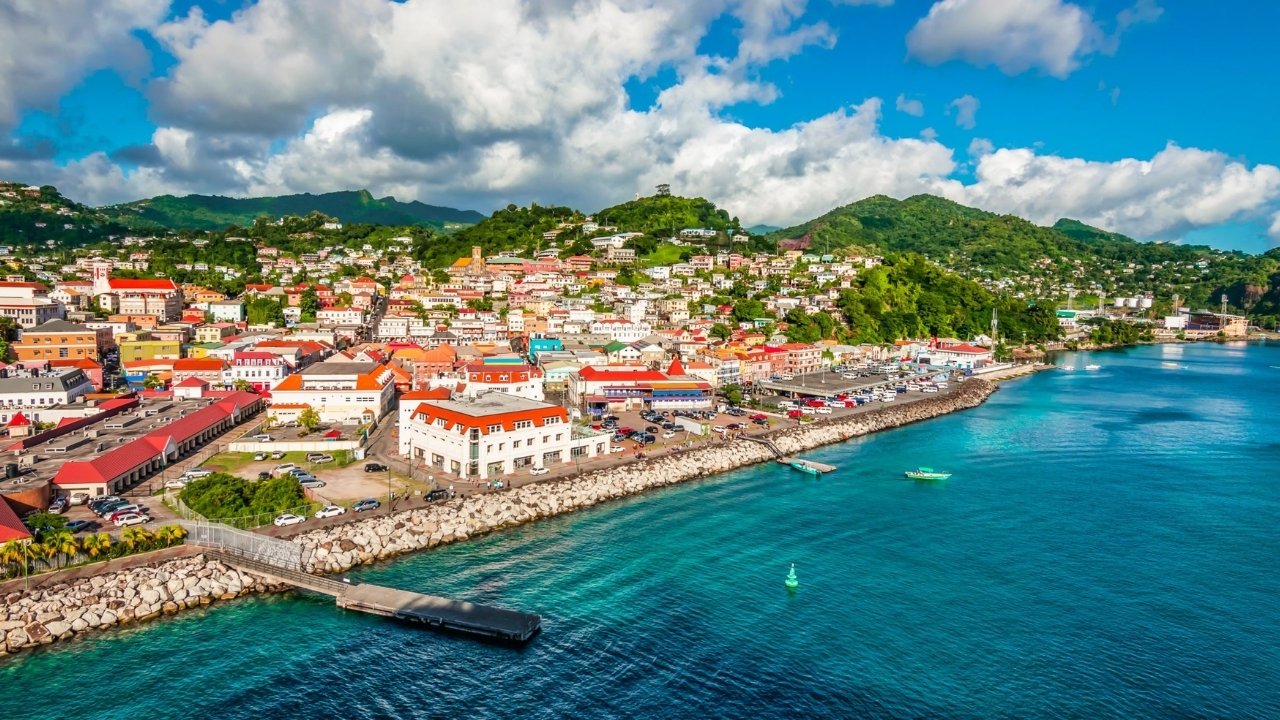
Grenada, known as the "Spice Isle," is a Caribbean gem brimming with rich culture, stunning landscapes, and fascinating history. But what makes this island so special? Grenada offers more than just pristine beaches and crystal-clear waters. From its unique underwater sculpture park to its vibrant festivals, there's always something intriguing to learn. Did you know that Grenada is one of the world's largest exporters of nutmeg? Or that it boasts a crater lake inside an extinct volcano? Whether you're a history buff, nature lover, or just curious, these 20 facts about Grenada will give you a deeper appreciation for this enchanting island. Buckle up for a journey through the wonders of Grenada!
Grenada's Unique Geography
Grenada, known as the "Spice Isle," is a Caribbean gem with a rich history, vibrant culture, and stunning landscapes. Let's dive into some fascinating facts about this beautiful island nation.
-
Grenada is part of the Lesser Antilles, a group of islands in the Caribbean Sea. It consists of the main island of Grenada and six smaller islands.
-
The island is volcanic in origin, giving it a mountainous terrain with lush rainforests and beautiful beaches.
-
Mount St. Catherine is the highest peak in Grenada, standing at 840 meters (2,760 feet) above sea level.
-
Grenada is home to Grand Etang Lake, a crater lake located in an extinct volcano. This lake is surrounded by a tropical rainforest teeming with wildlife.
Rich Cultural Heritage
Grenada's culture is a vibrant mix of African, European, and indigenous influences. This blend is reflected in its music, dance, and festivals.
-
The island celebrates its independence from the United Kingdom on February 7th each year. Grenada gained independence in 1974.
-
Carnival is one of the most significant cultural events in Grenada. It features colorful parades, calypso music, and traditional dances.
-
The island's official language is English, but Grenadian Creole, a French-based Creole language, is also widely spoken.
-
Grenada has a rich musical heritage, with genres like calypso, reggae, and soca being popular. The steelpan, a musical instrument made from oil drums, is also a significant part of Grenadian music.
Economy and Agriculture
Grenada's economy is primarily based on agriculture, tourism, and manufacturing. The island is famous for its spices, particularly nutmeg.
-
Grenada is one of the world's largest producers of nutmeg, earning it the nickname "Spice Isle."
-
Besides nutmeg, Grenada also produces other spices like cinnamon, cloves, ginger, and mace.
-
The island's economy benefits significantly from tourism, with visitors flocking to its beautiful beaches, resorts, and natural attractions.
-
Grenada's chocolate industry is growing, with several local companies producing high-quality, organic chocolate from locally grown cocoa beans.
Natural Wonders and Wildlife
Grenada boasts a diverse range of flora and fauna, with many unique species and natural attractions.
-
The island is home to the Mona monkey, an Old World monkey species introduced from Africa during the slave trade.
-
Grenada's underwater sculpture park, located in Molinere Bay, is the world's first of its kind. It features over 65 sculptures that serve as artificial reefs.
-
The island has several protected areas, including Grand Etang National Park and Forest Reserve, which is home to many endemic species of plants and animals.
-
Grenada's beaches are known for their stunning beauty. Grand Anse Beach, a two-mile stretch of white sand, is one of the most famous.
Historical Significance
Grenada has a rich history, with influences from indigenous peoples, European colonizers, and African slaves.
-
The island was originally inhabited by the Carib and Arawak peoples before being colonized by the French and later the British.
-
Fort George, located in the capital city of St. George's, was built by the French in the early 18th century and offers panoramic views of the harbor.
-
Grenada played a significant role in the American Revolutionary War, with the Battle of Grenada taking place in 1779 between British and French forces.
-
The island experienced a political upheaval in 1983 when a military coup led to the intervention of the United States, resulting in the restoration of democratic governance.
Grenada's Unique Charm
Grenada's got a lot more than just beaches and spice. This island nation is a blend of rich history, vibrant culture, and natural beauty. From the stunning Grand Anse Beach to the fascinating underwater sculpture park, there's something for everyone. The island's history, marked by colonial influences and resilience, adds depth to its charm.
Grenada's festivals, like Carnival, showcase its lively spirit and traditions. The local cuisine, bursting with flavors from fresh spices, is a treat for any food lover. Plus, the friendly locals make every visit memorable.
Whether you're exploring the lush rainforests, diving into crystal-clear waters, or simply soaking up the sun, Grenada offers an unforgettable experience. So, pack your bags and get ready to discover the hidden gems of this Caribbean paradise. Grenada's unique charm is waiting for you!
Was this page helpful?
Our commitment to delivering trustworthy and engaging content is at the heart of what we do. Each fact on our site is contributed by real users like you, bringing a wealth of diverse insights and information. To ensure the highest standards of accuracy and reliability, our dedicated editors meticulously review each submission. This process guarantees that the facts we share are not only fascinating but also credible. Trust in our commitment to quality and authenticity as you explore and learn with us.
